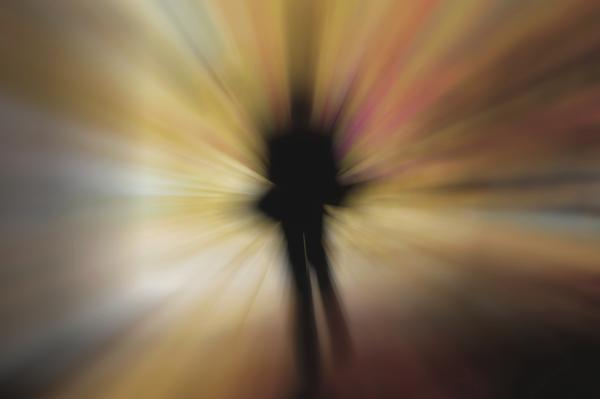
Don’t feel guilty if you think you’ve tried many times and failed. If you are one of those who think that you do not have willpower to achieve something, please consider reading this article.
In my work as a therapist I have met many people who want to free themselves from the power of addictions. There are different types of addictions: sex, food, drinks, toxic substances (alcohol, tobacco, drugs), gambling, work, shopping. Addiction is any compulsive behavior that goes beyond our control, that is, it dominates us. The object of addiction can change, it can be an inanimate object, an activity, a person, with which we establish a relationship of dependency, generating the withdrawal syndrome, with all the associated symptoms, especially anxiety. What all these addictive objects have in common is that they cause us pleasure, that is, they satisfy or rather, we believe that they satisfy one of our needs, since they really make us forget the true underlying need. They distort our essence, meanwhile, they make us illusorily reflect that what we need is to eat, buy, smoke, etc., to feel good, when in reality what we have are other deficiencies, mostly of a psychological nature, such as feeling safe. , accepted, loved, recognized.
Willpower in case of addictions
Not being able to contain oneself generates a strong guilt, because the person feels weak and unable to fight against the addictive object. He feels that something outside himself controls him, despite being aware that it is a mistake, that it causes him harm, or harms other people. Unfortunately, all addiction therapies are based on a cognitive-behavioral approach That is, they are based on the rewards for abstinence behavior and on the interpretations of why the person has begun to manifest a specific addiction. These rationalizations make the person commit to the therapist to avoid these behaviors, which will later be rewarded with recognition in the group they belong to, whether it is the family or the therapy group that shares the same addiction.
It is stated that the addicted person is a chronically ill person, who can never be cured again. That is, he must avoid by all means coming into contact with the addictive object or situation, for fear of relapse. This happens because in reality, the person with an addiction develops a addiction chain, sometimes of a different nature, meanwhile, none of the addictive objects satisfies the true need that is causing the lack. Some become substitutes for others, that is, it is a chain of substitutions. We have treated people who justify having started drinking alcohol due to the breakup of a relationship, or as a result of the loss of a loved one. We know that in the face of a breakup it is normal for the person to feel bad, but if it is impossible for them to overcome the loss, we think that this relationship constituted in itself a dependency out of control, which to “overcome” it gives rise to another dependency, in the example, alcohol.
Although it is true that there is an interaction between genes and the environment in addictive behavior, because it is so complex, it is not possible to accurately determine the causes of this pathology. The techniques that allow us to specify which genes are involved in this pathology have not yet been found, so far a multifactorial model has been proposed, where the genetic aspect can determine a certain vulnerability to suffering from addictions, although the decisive role continues to be assumed by environmental factors ( 1). Therefore, our position focuses on the weighting of environmental factors, without ignoring the importance, not yet precise, of genetic factors. We know that within the environmental factors we find the family with its respective interaction models. Due to this fact, the boundaries between genetics and education become imprecise.

Why that feeling of not having the will to overcome something?
To explain this lack of energy or willpower, we must delve into the explanation of the mechanisms of satisfaction of needs, based on the thesis that there is no unmotivated behavior, that is, it does not respond to a specific need. When someone acts, there is a need pressing that behavior, although the subject is not always aware of it.
To understand this mechanism I will refer to what in Gestalt therapy is known as the cycle of experience, introduced by J. Zinker (2). This cycle can be understood as a cycle of energy that is traveled through the appearance of a new experience in the life of any of us. When a need (1) arises, we go through several stages until it is satisfied. The first moment begins with the Sensitization, That is, the person experiences a deficit in the body, a tension arises due to something that they cannot yet specify, for example, a certain tickling in the stomach. The second phase is Awareness, and it is when the person discovers the object of need for him, in the example cited, it is when the person realizes that the tickling he feels is hunger.
The Mobilization It occurs when the person prepares for action, that is, decides that he needs to eat. The Action occurs when the person goes to the object that satisfies their need, in this case, they locate where the food is and go to look for it. He Contact It occurs when the person encounters the object and manages to satisfy their need, in this case, eating. Once the need is satisfied, the Post contact that is, when the person is fully satisfied, a loss of energy occurs and they enter a state of rest or relaxation, that is, they do not want anything else, even if it is their favorite dish, until they feel hungry again.
If we follow this need satisfaction scheme, we realize that when a need arises, a tension is generated that provides enough energy to mobilize action. That energy will have an appropriate course until its total loss, once the need has been satisfied with the object that corresponds to it. What blockages can occur during this process?
If the need arises, but it does not find the appropriate object for its satisfaction, for example, we have the feeling of hunger, but we cannot find something to eat, that tension will push us to find a substitute object Let’s say, drink something. It is like trying to deceive the need by looking for a palliative that can calm it momentarily, but that will return to demand its satisfaction shortly. The tension continues to move the person, who, not finding the appropriate object, will look for something else to numb the lack of it. It will never be satisfied with the substitute object, because in truth, that object is not intended for the true need.
The origin of addictions
Many times, therapies that promote abstinence suppress the substitute object and the initial tension finds no outlet, which is why they generally cause a aggressive behavior, while aggressiveness is nothing more than a mobilization to action. If you prevent the action from occurring, even in the search for a substitute object, the initial tension will accumulate, for this reason, the person becomes moody, anxious and even violent. Feelings of guilt are also generated, as the person feels that they must flee to avoid falling into temptation, when in reality, far from avoiding, one must seek to encounter or become aware of the true need that “hides” behind The addiction.
That is why I am not in favor of the addict being a chronically ill person, but rather that he is ill-treated ill. An addiction is a state of perennial lack, which, far from finding satiety, requires increasingly greater doses, since the addictive objects are substitutes for the true objects that would lead the person to achieve that state of rest or relaxation, where they no longer more of the same is required. Addicted people lack something, that is, they never manage to satisfy the need that gave rise to the tension that drives them to carry out an action that is repetitive and out of control.
This psychological mechanism is used by advertising, by manipulating the customer’s needs and stimulating consumerism. They know that most people are not fully satisfied and, furthermore, they are not fully aware of their state; They run after what they think they need, hoping to find that state of relaxation called happiness. They have the illusion that their shortcomings will be resolved once they acquire the product that is offered to them. They harbor the false idea that a product, or a certain lifestyle, will provide them with the happiness they long for. The worst of all is that most people don’t know what they really need.
From the moment we are born we are forced to repress our needs, in pursuit of a model or prototype of what our parents, and society in general, expect of us. Basic needs such as physiological needs (eating when we have no desires; not eating what we want, or going to bed when we are not sleepy); protection and security (leaving us alone when we need to be accompanied or invading our space when we want to be alone); of acceptance and identification (conditioning affection and acceptance on us doing what we do not want). Who has not suffered some of this psychological and physical violence throughout their life?
There comes a time when we disconnect from our true needs and begin to believe that we really We need what others tell us This is the origin of addictions. We forget what our true need is and we become a “ship without direction”, at the mercy of any object, person or situation in which to place our tensions arising from latent needs. The needs are still there, hidden from our consciousness. Regardless of when they arise, they continue to generate tension. But the worst of all is that contact with that substitute does not relieve the tension that has arisen, but rather increases it. Where is that tension going?
In the search for a substitution, we will find a momentary relief The worst of all is that these substitutions will never satisfy us, they will not calm our anxiety, they will only make us forget about it for a while. And we continue compulsively, without being able to stop, looking for relief that takes longer and longer to arrive and increasing the feeling of helplessness, feeling weak because we cannot fight against them.

Is there then a lack of will?
As you may have noticed, the compulsion to fill “this bottomless basket” is really weakening us. Only those who have completed a cycle get restful rest. If I am hungry and eat a tasty and nutritious meal until I am completely satisfied, it is very likely that if I am presented with a new dish, no matter how attractive it may be, I will reject it.
You may wonder, why is it that a person who is addicted to food, whenever he or she is presented with food, cannot resist the urge to eat even if his or her stomach is completely full? Because that person who eats compulsively does not do so out of physiological hunger, but by eating he tries to satisfy a need of another kind probably a hunger for affection.
How do we know what the true needs are and how can we satisfy them?
A child whose physiological needs are adequately satisfied, according to free demand; When you feel protected, safe, accepted, stimulated, you will begin to develop great willpower, which is nothing more than enough energy to say NO when you have to reject what you do not want, or defend your needs with total conviction and independence. . It is not that he is a capricious child who must be pleased with everything, but rather that he is a tolerant, patient, willing and creative child, who can adapt perfectly to situations and learns to prioritize his needs, while waiting for the moment. more convenient to satisfy them. He adjusts to conditions creatively because he is sure that he will always be able to satisfy them. On the other hand, the tantrum and dominant child is an insecure child, who knows that he has to use those mechanisms if he intends to satisfy his needs. An adaptable child is one who knows that he will be able to satisfy his needs, without having to manipulate others.
In summary, we can say that the recognize our true needs without self-deception or rationalizations, and knowing how to orient ourselves where to find what satisfies them, is to have a plan, an objective, it is give meaning to our lives Often the addict lacks these expectations, or makes unattainable plans, unaware of their real possibilities. A blockage called procrastination occurs, that is, the person postpones each closure, and will not be able to adequately begin the satisfaction of a new need, as long as there is one unsatisfied. Abraham Maslow, in his theory of Human Motivation, stated that higher needs do not arise until lower needs have been satisfied (3). The addict is a person who becomes desensitized, that is, he stops feeling his true needs, he stops feeling himself.

What solution exists then to the recognition of latent needs?
We know that the process of self-knowledge is difficult. There are too many defense mechanisms, accumulated since childhood, masking our true needs. Awareness occurs with help from a therapist that allows us to detect unfinished situations, express the unexpressed, seek direction and make direct expression. Experience in the present what you do not want or what you hide, in order to realize it. Experience, experience again, as if it were happening in the current moment. Reflect on our childhood, repeat phrases, gestures, give life to the objects that we use as substitutes and allow them to “speak to us.” That is, try to translate certain gestures on a verbal level, act and identify feelings and emotions.
If you have lost confidence in yourself, if you find yourself guilty of fighting against something that you consider stronger than you, think that all is not lost, that in the present you can find a way to be a true winner. Gestalt therapy it is a very good option.
This article is merely informative, at PsychologyFor we do not have the power to make a diagnosis or recommend a treatment. We invite you to go to a psychologist to treat your particular case.
If you want to read more articles similar to Why don’t I have willpower? we recommend that you enter our Personal Growth and Self-Help category.
- Ibañez Cuadrado A. (2008): Genetics of addictions. Addictions Magazine, no. 2, Vol. 20, link: http://www.adicciones.es/ficha_art_new.php?art=587
- Zinker, J. (1979): The creative process in Gestalt Therapy. Buenos Aires. Paidós.
- Maslow, A.H. (1943): A THEORY OF HUMAN MOTIVATION, Originally Published in Psychological Review, 50, 370-396. Link: http://www.altruists.org/f62








